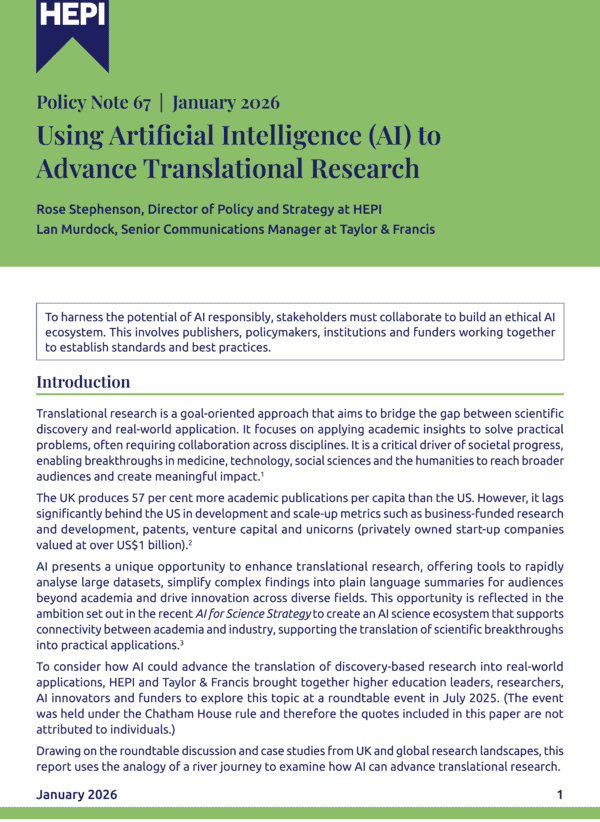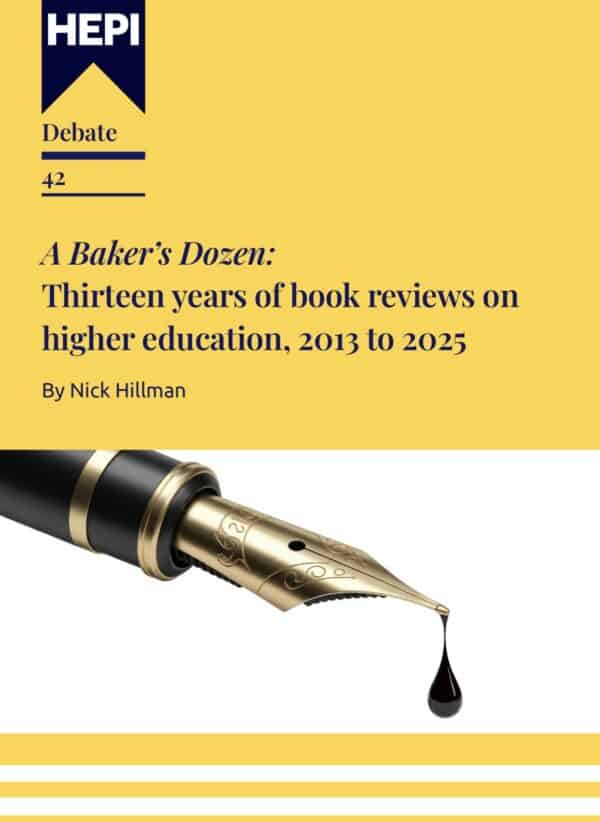Can a Graduation Cohort Change a Future of a Country’s Education?
This HEPI guest blog was kindly authored by Ali Adnan Mohammed, Executive Assistant to the Dean of College of Arts & Sciences at the American University of Iraq in Baghdad.
Rarely does a graduation ceremony mark a turning point in a country’s cultural trajectory. But this was the case for a handful of graduates at the American University of Iraq in Baghdad (AUIB). AUIB is a private university that was founded in February 2021 and began with only three colleges: the College of Business, the College of International Studies, and the College of Arts & Sciences.
The university has grown to nine colleges hosting approximately 1,600 students. Among its first graduation cohort, six were students from Iraq’s first College of Arts & Sciences, an academic innovation in a country where the education system is built on the separation of arts & sciences from high school education onwards. This college marks a new chapter in the story of rebuilding Iraq’s education and reclaiming its historic regional educational prominence.
Once they join high school, Iraqi students around the age of 15 must choose one of two academic tracks: arts or sciences. This choice, along with their percentage score in the national exam at the end of high school would determine their college majors. Unlike the UK system, students have little space for personal choice and preferences as their score and high school track are the sole determinants of major choice.
At Iraqi colleges, there are no core liberal arts courses. That is, courses outside the field that can allow students to explore a broad range of disciplines outside their major, allowing space for intellectual exploration. Rather, students must go through a strict year-by-year schedule of confined major courses with few standard courses outside their specialisations, such as computer science and human rights. For example, students majoring in biology are not able to take elective courses in psychology or archaeology. This would limit their intellectual experience in campus life and turn the college experience more towards an obligation that has to be fulfilled.
In 2021, AUIB disrupted the traditional model with its liberal arts education model through its College of Arts & Sciences. Here, students can pick their core liberal arts courses from a diverse list regardless of their major. Science students can pick up three courses in communication, five courses in humanities, and two courses in social sciences. These courses will not only enhance their intellectual mentality but will also enlighten their lives with purpose and meaning.
Their education experience has gone beyond sole preparation for the job market. It has sparked a deeper sense of belonging and responsibility for the future of their country. As some shared with me, computer science graduates look forward to contributing their AI experience to enhancing Iraqi institutions & country-rebuilding initiatives.
As an executive assistant to the college dean, I have witnessed firsthand the contributions of this innovative model to the graduates and how it has broadened their intellectual mindset beyond their specialisations and paved the way to a connection that the traditional system never allowed. When I congratulated Muqtada, a graduate student of computer science, he told me that he would like to contribute his knowledge of computer science to rebuilding the country, and this is why he joined a legal firm as a junior program manager.
‘I just do not feel like working in tech companies, I want to contribute my AI skills into something else, and this legal firm gave me a good chance to try.‘
This sentence struck me as a sign that the innovative model of AUIB is successful. AI was not the sole purpose; it was a tool Muqtada wanted to purposefully utilise. Isn’t that where arts & sciences meet?
I started talking to the graduates about their purposes or journeys to find one. This was the untold story of the first cohort of the first-ever college of Arts & Sciences in Iraq. I can only wait and witness what further contributions the rest of the cohorts will bring to my country.
The Ministry of Higher Education in Iraq has been working on the implementation of the Bologna Process, the European model, in Iraqi universities. This effort of reformation has been going back and forth. Aside from the essential differences between the Bologna Process and the Liberal Arts, both will give a chance to Iraqi students to have a university life that promotes freedom and choice early on into students’ college life. The first cohort of AUIB, specifically the College of Arts & Sciences, might be a further push towards a faster track to reform Iraqi universities.







Comments
Adil Ghidan says:
This is an inspiring and insightful piece, Ali. It beautifully highlights how even a small cohort of graduates can carry the potential to reshape an entire nation’s educational landscape. The introduction of a liberal arts model at AUIB is not only a bold academic innovation but also a meaningful step toward empowering Iraqi students with the freedom of intellectual exploration and purpose-driven learning. Stories like Muqtada’s show how education, when approached holistically, can go beyond technical skills to instill responsibility, vision, and a commitment to national progress. This first cohort represents much more than a graduation milestone—it is the beginning of a transformative journey for Iraq’s higher education system and its future leaders.
Reply
Add comment